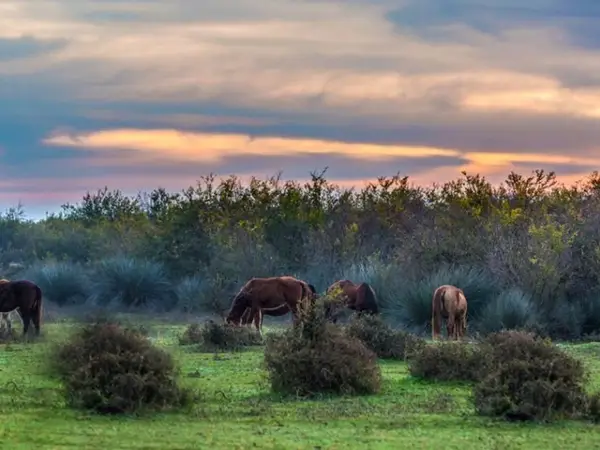Iranian media have revealed new details about a brewing scandal related to the illegal construction of a petrochemical plant near a UNESCO wildlife reserve.
Borna news agency has reported that a man behind three companies licensed to build the project is a shady character who already owes a lot of money to government banks.
President Ebrahim Raisi ordered a new halt to the controversial petrochemical project until "ambiguities about its environmental impact" are removed, interior minister said Sunday.
On April 10, after intense controversy over the environmental impact of the project and shady records of the company behind it, Raisi called an immediate halt but media reports said the company has continued construction on the 90 hectare site close to the Miankaleh UNESCO-designated biosphere reserve.
Environmental activists have been campaigning to stop the project due to expected adverse impact on the coastal region and its wildlife and have even urged Supreme Leader Ali Khamenei to intervene. The land earmarked for the project is also said to be high-quality agricultural public land.
Borna news agency said Foulad Alborz Iranian (FAICO), one of the subsidiaries of Amirabad-e Mazandaran Limited, is at the top of the list of individuals and companies which owe massive sums to the government-owned Tose'e Saderat Bank. Iran's state banks have been publishing lists of their 'super borrowers' with largest debts this week.
Borna said it had acquired documents that showed the guarantee for the payment of the loans had been made by the company's major shareholder, Abbas Abdi, who is also a major shareholder of several other companies active in Mazandaran Province including those involved in the petrochemical project.
Individuals and entities who borrow large sums from state banks through their connections with politicians, bureaucracy or the military are known as ‘super-borrowers’ in Iran. They usually get the multi-million-dollar loans pretending to have job-creating projects, but often use the money for other purposes or simply take it out of the country and never repay. The same connections they have, often protect them from prosecution and at most they lose worthless collaterals to banks. It is believed that officials who help ‘super-borrowers’ have a stake in the schemes.
The news agency also published the image of a ruling by the justice department of Tehran that shows Abdi was sentenced to seven years in prison for fraud in 2020, in absentia. No one knows if he is now in Iran or not.
Borna said FAICO owed over 13 trillion rials ($52 million in current exchange rate) to Tose'e Saderat Bank for two foreign currency loans it received at government subsidized rates in 2016, and the interest and that the collateral offered by Abdi for the loans is worth only one-third of the sum of the original loan.
The report also suggested that Abdi who has a record of failing to pay back huge loans as well as fraud was helped by persons or entities in powerful centers to get the license to launch the petrochemical megaproject.
Several powerful figures including Parliament Speaker Mohammad Bagher Ghalibaf, the governor of Mazandaran Province and the Friday Prayer Imam of the region have strongly and publicly defended the project and some hardliners have gone as far as saying opponents of the project are in essence opponents of the Supreme Leader, thus trying to accuse them of a political crime.
